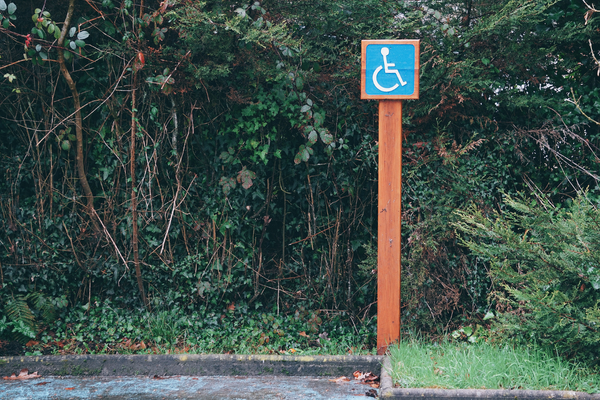7/1/25 - AI discrimination, state waiting lists, and brain implants

Good afternoon!
As I write this, the US Senate has just passed the President Trump's huge domestic policy bill. I don't know what that means for continuing advocacy efforts. The bill goes back to the House now. If there are new action alerts I'll add them, probably tomorrow. To review the current action alerts, scroll down to the "Take Acton" section below.
Here are your three links for today. But first, please consider a monthly or annual paid subscription. Your financial support helps make this newsletter possible.


Disabled Amazon workers in corporate jobs allege ‘systemic discrimination’
Stephanie Kirchgaessner and Michael Sainato, The Guardian - June 30, 2025
"At the center of the Amazon workers’ complaints are allegations that the company has denied requests for accommodations for disabled staff in an “automated” or “semi-automated” way and have allegedly repeatedly removed messages and a petition from an employee Slack channel."
It looks like tis case isn't solely about possible discriminatory effects of AI, (Artificial Intelligence). It also involves union organizing and Amazon's ongoing "return-to-office" push – which itself may affect some disabled employees in a discriminatory way. I am still ambivalent about AI overall and what it means for disabled people. But this may be the most immediate and specific danger of AI f0r disabled people – the automation of previously human decision-making around reasonable workplace accommodations, by systems that could have discriminatory criteria embedded in their programming.
Gov. Pillen Celebrates Elimination of the Developmental Disabilities Waitlist
Laura Strimple, Office of the Governor - June 23, 2025
"The elimination of the waitlist is the result of an unprecedented investment of over $18 million, plus matching federal funds, to better enable the delivery of support services to children with disabilities and their families."
This is an official announcement. So I don't know how much of the celebration is truly justified. But eliminating waiting lists for disability services is one of the few easily-definable goals in the field of disability policy. Making sure everyone who qualifies for disability services is actually getting them is a good thing, and simple, if not always easy to do. The whole point of waiting lists is that the services already exist, and the disabled people who need them are already known to be qualified for them. All that's needed is more money, which in the US at least, usually means a vote by a state legislature and a governor willing to sign. Again, it's pretty simple and solvable. But in the current political climate, it's hard to imagine many more states doing what Nebraska has apparently done. The federal government is retracting, and states are going to have a hard time paying for what they are already providing, without trying to pay for more. Still, working through waiting lists for disability services is worth fighting for.
Click, speak, move: These brain implants are poised to help people with disabilities
Jon Hamilton, National Public Radio - June 30, 2025
"More than two decades after researchers first demonstrated that a person could move a computer cursor with their thoughts, several firms are poised to take the brain-computer interface (BCI) from experimental curiosity to commercial product."
Like most stories about disability policy victories, stories about new strides in biotechnology as a treatment for disability should always be regarded with a critical eye. We shouldn't ignore these new technologies just because they can seem like pie in the sky dreaming. We shouldn't completely dismiss them because they are still far out of reach for most disabled people. And we shouldn't completely condemn them just because new innovations can so easily miss the mark on what disabled people actually want from assistive technology. But at the same time, we shouldn't let ourselves gush over technologies like this that are being hyped by entrepreneurs who are after all in it for the money, as much or maybe more than for the prestige and service to disabled people.





Disability Thinking Weekday is a Monday-Friday newsletter with links and commentary on disability-related articles and other content. Please like, share, comment, and subscribe — for free, or with a paid subscription. A free subscription brings a newsletter to your email each weekday, and gives you access to Comments. Benefits of paid subscription also include:
- A monthly recap with links to all of the previous month's shared articles, organized by topic.
- Listing as a supporter, and a link to your website if you have one.
- You can recommend one disability-related article for me to share per month in a weekday post.
To to subscribe, upgrade to paid, or make a one-time donation, click one of the buttons below:

I am so grateful for your help and engagement, in whichever forms you choose!



